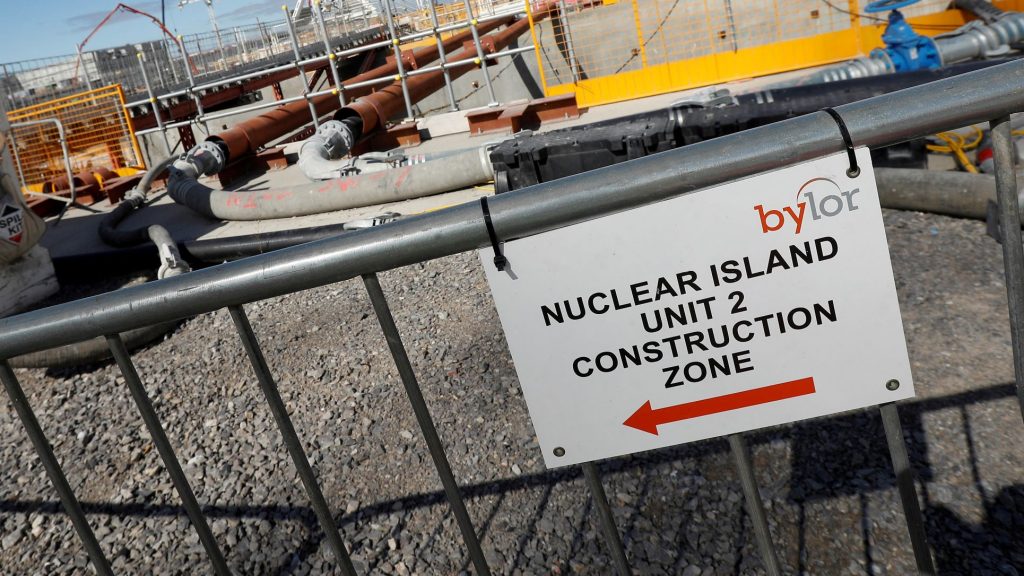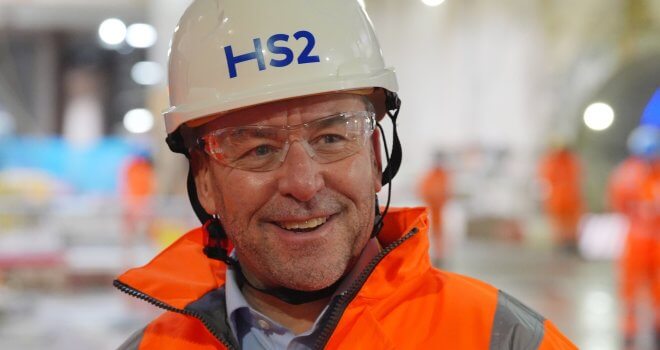Britain Plans Nuclear Power, Offshore Wind To Boost Energy Independence

Britain will set out a plan to expand nuclear and offshore wind power on Thursday in a drive to bolster its energy independence at a time of surging prices and Russia’s invasion of Ukraine.
It will increase wind, nuclear and solar generation, whilst supporting production of domestic oil and gas in the near term, the government said, adding that 95% of electricity by 2030 could be low-carbon.
Nuclear is central to the plan, with an ambition to increase capacity to 24GW by 2050. That would meet around a quarter of projected electricity demand, up sharply from about 14% today.
Prime Minister Boris Johnson said the plan would scale up “affordable, clean and secure energy made in Britain, for Britain”.
He said it would “reduce our dependence on power sources exposed to volatile international prices we cannot control, so we can enjoy greater energy self-sufficiency with cheaper bills.”
The targets include up to 50GW of offshore wind by 2030. Up to 5GW would come from floating installations in deeper seas. There would also be a new licensing round for North Sea oil and gas, and a consultation on rules for solar projects.
Johnson had promised the strategy almost a month ago but it has been delayed by disputes over funding and opposition by some lawmakers to onshore wind farms.
The plan will have no immediate impact on supply or prices that have helped push UK inflation to a 30-year high, but increased nuclear, solar, wind and hydrogen will help the long-term shift from fossil fuels.
Energy prices surged last year as the global economy reopened after the pandemic. Russia’s invasion of Ukraine sent them higher again.
Unlike Germany, Britain is not dependent on Russian energy, with the country supplying 8% of oil demand and less than 4% of natural gas – but it will be hit by competition as Europe seeks alternative sources.
London said on Wednesday it would ban imports of Russian oil and coal by the end of the year, and would phase out Russian gas as soon as possible.
Surging prices caused British consumer bills to rise 54% in April, and industries such as producers of glass, steel and chemicals say they cannot compete when prices are so high.
Gas-fired plants generated 40% of Britain’s electricity in 2021, with wind providing 20%, nuclear 14%, imports 9% and others such as bioenergy, solar and coal the rest.
The government said it would push forward new nuclear projects as soon as possible, including at the Wylfa site in Anglesey, Wales.
A new body – Great British Nuclear – will be set up, it said, and up to eight new reactors could be delivered, equivalent to one a year instead of one a decade.
All but one of Britain’s existing nuclear plants are scheduled to close by 2030 and the first new plant in more than 20 years, Hinkley Point C, is expected to come online in 2026, almost a decade later than originally promised.
(Reporting by William James and Paul Sandle; writing by Kate Holton; Editing by David Gregorio)




